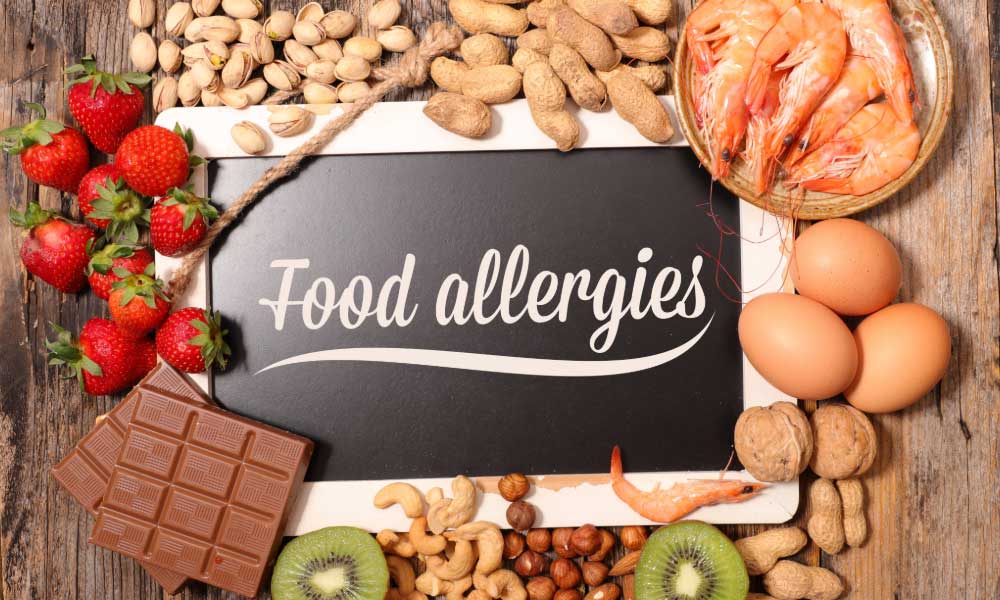Every food has the capability to cause an allergic reaction. While some food allergies are more common than others (like the top nine identified by the FDA), the body can react to almost any food or additive. Fortunately, though, mechanisms in the body keep most people from reacting.
Why do food allergies happen?
Here’s how they manifest in the body:
- A problem food is eaten
- The immune system recognizes a protein in the food as harmful
- Those proteins bind to IgE (a type of antibody)
- Histamine is then released into the blood stream
- This causes a variety of symptoms
Food allergy symptoms can range from mild to severe, including:
- Hives
- Upset stomach
- Itchy mouth and throat
- Throat tightness
- Labored breathing
- And in severe cases, anaphylaxis
There are two main plans of action for reducing reactions to food allergens: avoidance and immunotherapy. Providers at AAOL may recommend both, at least to begin.
To diagnose a food allergy, providers start with a detailed history, exam, and allergy testing to determine which foods cause your symptoms. Testing provides an accurate reading of exactly how allergic you are to problem foods, and your provider may recommend allergy drop immunotherapy from there.
Allergy drops following The La Crosse Method™ Protocol include gradually increasing amounts of FDA approved antigens of your problem foods – enough to build tolerance, but not too much to cause reactions. Over time, the body learns to tolerate that amount of antigen, and then the dose is increased until a maintenance level is reached.
As you go through treatment, your provider may recommend limiting or avoiding those allergens until they assesses your progress with continued testing or a Graded Oral Food Challenge. After successful treatment, some patients can add their problem food back into their diet, and some have a layer of safety in knowing their reactions, if exposed, won’t be life-threatening.
At AAOL, hundreds of different food allergies have been treated, from avocado, broccoli, and cabbage, to chicken, goat milk, and rice. If you’re looking for safety when it comes to you or your child's food allergies, schedule a consultation with a provider at AAOL.
Request an Appointment
